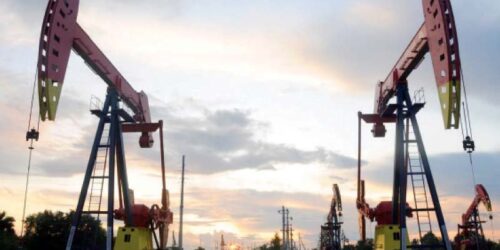As oil marketing companies (OMCs) have refused to bear operational losses in the transportation of petrol through a pipeline, the government is likely to pass on these losses to the oil consumers.
High-speed diesel and petrol are among the widely used fuels in the country, with diesel being utilised by the transport and agriculture sectors.
The main source of transportation for petroleum products, mainly petrol, is oil tankers, which are not efficient and there have been reports of oil theft by these lorries.
At present two pipelines – the White Oil Pipeline (WOP) and Mehmoodkot-Faisalabad-Machike (MFM) pipeline – are transporting diesel to meet the entire demand of upcountry.
Pak-Arab Pipeline Company Limited (Papco) and Pak-Arab Refinery Company Limited (Parco), the pipeline operators, have executed a project costing $194 million to convert the two pipelines into such facilities that will transport multiple petroleum products like diesel and petrol in an efficient way with less freight cost.
The pipeline operators have completed the project and it will start commercial operation in June this year.
Sources in the oil industry told The Express Tribune that OMCs had also made a huge investment to build storage tanks and set up associated facilities at various delivery points along the pipelines.
As gasoline is a volatile product with high evaporation rate, the oil industry has conveyed to the government that there will be higher losses while handling the product through pipelines.
The oil industry has projected higher losses compared to the transportation of a single product like diesel when pipelines will be used to transport multiple products. These losses will occur at the time of transporting oil from a ship to delivery points by using the pipeline network.
The oil industry has said that they did not have enough margins and therefore they could not bear operational losses of the pipeline. The pipeline operators were also not ready to bear the operational losses.
OMCs have suggested to the government to include at least 1% operational losses of pipelines in the Inland Freight Equalisation Margin (IFEM).
Pipeline operators and OMCs have to sign commercial agreements and therefore they have come up with the demand to resolve this issue first before moving ahead with the commercial deals.
But oil industry officials said that the government as well as the industry did not have any benchmark of operational losses to include in the freight margin. However, there are some international benchmarks which the government may follow to allow operational losses.
At present, local customs authorities provide an allowance of 1% on account of evaporation and terminal handling losses. The Customs & Excise Department of Singapore allows 1% working losses for products with a flashpoint below 23°C such as gasoline, LPG and aviation gasoline.
The US allows 0.5% loss of the quantity documented regarding losses for bulk petroleum products. Energy Regulation Board of Zambia/Tanzania also provides terminal losses allowance and transportation losses at 0.5% for gasoline. The government of India (Ministry of Finance) had also allowed the transit loss in deliveries by pipeline to a maximum ceiling of 0.5% for motor gasoline.
Results of PARCO laboratory test on evaporation rate/physical behaviour showed that evaporation rate of gasoline is around 11 times more than that of diesel. Accordingly, inference based on PAPCO’s actual experience factor at 0.06% for diesel works out to an estimated loss percentage at 0.66% for gasoline.
Since the instant case pertains primarily to the transportation loss only to the extent of pipeline segment rather than all-inclusive operational losses, sources said that th government may allow operational losses up to a maximum of 0.5% for gasoline transportation through WOP and MFM pipelines through IFEM.
The Petroleum Division further said that there would be saving of over Rs3 per litre even if the government allows 0.5% operational losses for transportation of petrol through pipeline from Karachi to Mehmood Kot near Multan.
Moreover, oil tankers had been a safety threat as Shell tankers had exploded near Bahawalpur in the past that had resulted in more than 200 deaths.
Oil tankers had also caused a threat to smooth supply in past as they had on occasion announced strikes that resulted in blocking road and interrupting smooth supply of fuel.
The transportation cost of petrol through pipelines will not only be safe but it would also provide secure supply of petroleum products. The country had faced petrol crisis in different times due to floods and even strikes by oil tankers. The supply through pipelines would help ensure smooth supply to address the threats of petrol shortage in future.







